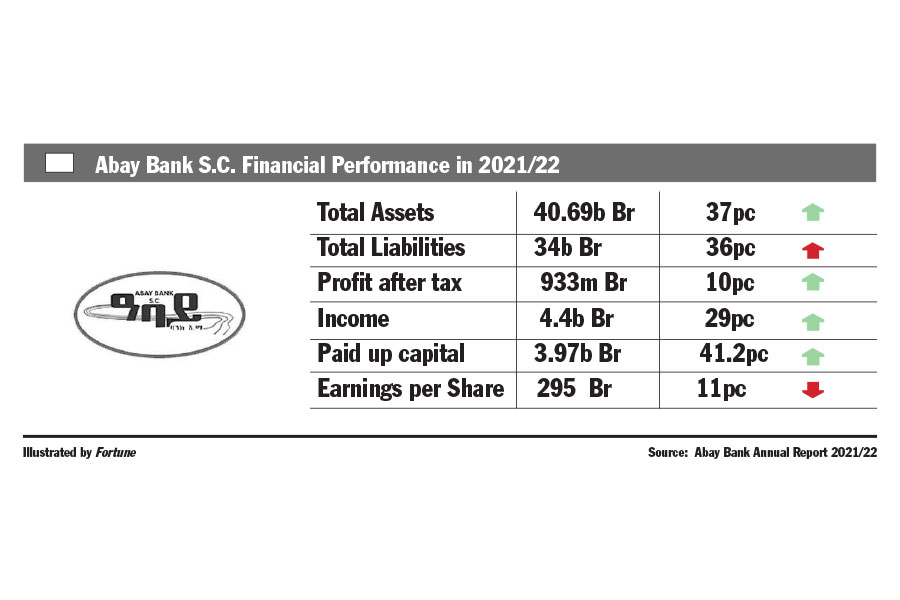
Commentaries | Jul 23,2022
Dec 7 , 2019
By Asseged G. Medhin
The challenge the financial system is faced with in the 21st Century is the challenge of all time. There are streams of customers who come to our doors today who have extensive product knowledge and demand the utmost service. The form of capital structure has totally shifted with risk regulation models. One can argue that no known and acceptable model remains on the shelf of software developers for more than a year. The global world has already set the critical path that urges all financial sectors of the world to move fast or wither away.
The only way to meet this demand is through the use of financial technology, or fintech, which combines financial products with technology to meet the high demand of customer service today. Fintech enables the sector to compete, enable and collaborate with financial institutions globally.
In this global village any financial institution has to play positively, wisely, ethically and with knowledge-based prescience. Without these, it would remain a museum of past successes. All their experiences would not keep them from becoming dinosaurs.
This is a new business era with new ways of doing things. From simple automation to bigger strategies, the degree of flexibility is important. We are facing a unique business environment. In this one global village we need to have a bigger appetite, a larger strategy, a higher rate of return and extensive knowledge of the business at hand. Fintech is an inevitable fact and a survival mechanism for today’s financial industry.
Fintech is mandatory due to the fact that it enables financial institutions to fulfill customer demands and offer innovative, effective and cost-efficient technologies when compared to their traditional counterparts.
When I argue that the Ethiopian financial system needs to modernise, I mean to say that action should be taken now. Or it will be too late. The Ethiopian economy has already been challenged by the global trend to innovate and use financial technology to transact business across boarders. Even though Ethiopia is favored by its location and size to be a part of this revolution, it has not kept pace so far.
We need to think out of the box now and allocate all required resources to use fintech to integrate with regional and global markets in financial services provision. We should take advantage of the new economic policy the country is following. The rationale behind fintech is not only modernisation, but it is also proper market positioning and changing the structure of capital and investment.
When firms modernise, it means they are increasing collaboration between business-to-business frameworks and financial institutions act as clients, backers or partners to a fintech enterprise.
The process of doing business is achieved through purchasing, investing or co-developing fintech products and services and possibly offering them directly to the market. Any customer at any place at any time could buy any financial product or service at a favorable price under convenient conditions.
We know how much simpler automation makes the sales process for customers. Mobile banking and electronic transfers help customers reach their business targets with stunning speed.
In contrast insurance transactions and claims management in Ethiopia still remains archaic across the industry. The economic challenges are getting tough by the day. Only the wise ones that strategize soundly will survive to tell the story of how the archaic dinosaurs that refused to adopt fintech went extinct.
Different sectors of the government are going to be changed technologically with the aid of the fresh political ideology and direction of the government. Abiy’s administration is moving faster than we expected. We are heading to the era of electronic identity cards, registration of voters and elections will be forever changed. Donor groups and financiers are changing their criteria based on technological methodologies. These imply that the overall political framework of the country is changing, which eventually gives room to the financial sector to embrace technology to take advantage of an economic environment that is more business friendly.
As Ethiopia is expected to be integrated to the regional economy in the upcoming decade, this should be started through the use of technology now. To this end, the country's financial sector players should build their technological capacity to be competitive in the regional market.
Financial technology, adequacy of capital, risk regulation and knowledge-based services have become the next challenge since Ethiopia is required to open up the financial sector to the world at large. The focus of developmental integration is meant to be more liberal and is faster than expected. The financial sector needs to revise its strategy accordingly. Though it is the toughest job, the return is high as well.
PUBLISHED ON
Dec 07,2019 [ VOL
20 , NO
1023]


Commentaries | Jul 23,2022

Radar | Aug 17,2025

Agenda | Jan 01,2022

Sunday with Eden | Feb 26,2022

Radar | Nov 30,2019

Fortune News | Nov 09,2019

Fortune News | Feb 07,2024

Fortune News | Mar 18,2023

Life Matters | Jan 04,2020

Fortune News | May 11,2019

Photo Gallery | 180753 Views | May 06,2019

Photo Gallery | 170944 Views | Apr 26,2019

Photo Gallery | 162051 Views | Oct 06,2021

My Opinion | 137313 Views | Aug 14,2021

Dec 22 , 2024 . By TIZITA SHEWAFERAW
Charged with transforming colossal state-owned enterprises into modern and competitiv...

Aug 18 , 2024 . By AKSAH ITALO
Although predictable Yonas Zerihun's job in the ride-hailing service is not immune to...

Jul 28 , 2024 . By TIZITA SHEWAFERAW
Unhabitual, perhaps too many, Samuel Gebreyohannes, 38, used to occasionally enjoy a couple of beers at breakfast. However, he recently swit...

Jul 13 , 2024 . By AKSAH ITALO
Investors who rely on tractors, trucks, and field vehicles for commuting, transporting commodities, and f...

Nov 1 , 2025
The National Bank of Ethiopia (NBE) issued a statement two weeks ago that appeared to...

Oct 25 , 2025
The regulatory machinery is on overdrive. In only two years, no fewer than 35 new pro...

Oct 18 , 2025
The political establishment, notably the ruling party and its top brass, has become p...

Oct 11 , 2025
Ladislas Farago, a roving Associated Press (AP) correspondent, arrived in Ethiopia in...

Nov 2 , 2025
The National Bank of Ethiopia (NBE) has scrapped the credit-growth ceiling that had s...

Nov 2 , 2025 . By SURAFEL MULUGETA
The burgeoning data mining industry is struggling with mounting concerns following th...

Nov 2 , 2025 . By YITBAREK GETACHEW
Berhan Bank has chosen a different route in its pursuit of a new headquarters, opting for a transitional building instea...

Nov 2 , 2025 . By BEZAWIT HULUAGER
Nib International Bank S.C. has found itself at the epicentre of a severe governance...